- Home
- Quizzes
- My Quiz Activity
- Newsletters
- Sports Betting
- MY FAVORITES
- Add Sports/Teams
- SPORTS
-
NFL
- NFL Home
- Arizona Cardinals
- Atlanta Falcons
- Baltimore Ravens
- Buffalo Bills
- Carolina Panthers
- Chicago Bears
- Cincinnati Bengals
- Cleveland Browns
- Dallas Cowboys
- Denver Broncos
- Detroit Lions
- Green Bay Packers
- Houston Texans
- Indianapolis Colts
- Jacksonville Jaguars
- Kansas City Chiefs
- Las Vegas Raiders
- Los Angeles Chargers
- Los Angeles Rams
- Miami Dolphins
- Minnesota Vikings
- New England Patriots
- New Orleans Saints
- New York Jets
- New York Giants
- Philadelphia Eagles
- Pittsburgh Steelers
- San Francisco 49ers
- Seattle Seahawks
- Tampa Bay Buccaneers
- Tennessee Titans
- Washington Commanders
-
MLB
- MLB Home
- Arizona Diamondbacks
- Atlanta Braves
- Baltimore Orioles
- Boston Red Sox
- Chicago White Sox
- Chicago Cubs
- Cincinnati Reds
- Cleveland Guardians
- Colorado Rockies
- Detroit Tigers
- Houston Astros
- Kansas City Royals
- Los Angeles Angels
- Los Angeles Dodgers
- Miami Marlins
- Milwaukee Brewers
- Minnesota Twins
- New York Yankees
- New York Mets
- Oakland Athletics
- Philadelphia Phillies
- Pittsburgh Pirates
- San Diego Padres
- San Francisco Giants
- Seattle Mariners
- St. Louis Cardinals
- Tampa Bay Rays
- Texas Rangers
- Toronto Blue Jays
- Washington Nationals
-
NBA
- NBA Home
- Atlanta Hawks
- Boston Celtics
- Brooklyn Nets
- Charlotte Hornets
- Chicago Bulls
- Cleveland Cavaliers
- Dallas Mavericks
- Denver Nuggets
- Detroit Pistons
- Golden State Warriors
- Houston Rockets
- Indiana Pacers
- Los Angeles Clippers
- Los Angeles Lakers
- Memphis Grizzlies
- Miami Heat
- Milwaukee Bucks
- Minnesota Timberwolves
- New Orleans Pelicans
- New York Knicks
- Oklahoma City Thunder
- Orlando Magic
- Philadelphia 76ers
- Phoenix Suns
- Portland Trail Blazers
- Sacramento Kings
- San Antonio Spurs
- Toronto Raptors
- Utah Jazz
- Washington Wizards
-
NHL
- NHL Home
- Anaheim Ducks
- Arizona Coyotes
- Boston Bruins
- Buffalo Sabres
- Calgary Flames
- Carolina Hurricanes
- Chicago Blackhawks
- Colorado Avalanche
- Columbus Blue Jackets
- Dallas Stars
- Detroit Red Wings
- Edmonton Oilers
- Florida Panthers
- Los Angeles Kings
- Minnesota Wild
- Montreal Canadiens
- Nashville Predators
- New Jersey Devils
- New York Islanders
- New York Rangers
- Ottawa Senators
- Philadelphia Flyers
- Pittsburgh Penguins
- San Jose Sharks
- Seattle Kraken
- St. Louis Blues
- Tampa Bay Lightning
- Toronto Maple Leafs
- Vancouver Canucks
- Vegas Golden Knights
- Washington Capitals
- Winnipeg Jets
- NCAAF
- NCAAM
- Boxing
- Entertainment
- Lifestyle
- Golf
- MMA
- Soccer
- Tennis
- Wrestling
- More Sports
- RESOURCES
- My Account
- YB on Facebook
- YB on Twitter
- YB on Flipboard
- Contact Us
- Privacy Policy
- Terms of Service
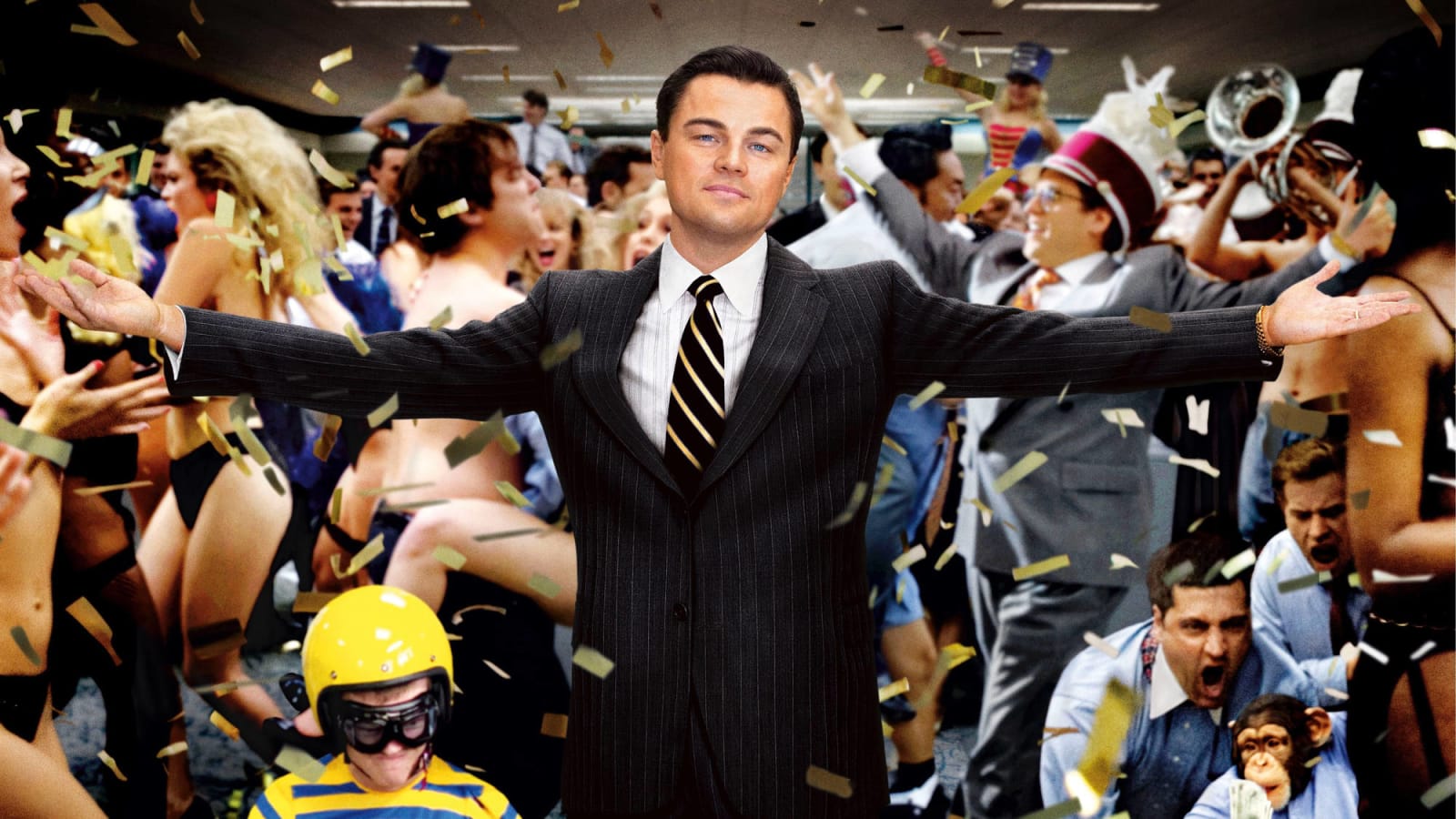
The second decade of the new millennium is drawing to a close, which is, as ever, an occasion to look back on the art of the last 10 years and determine how it both reflected and influenced our reality. It has been a turbulent run. We're still at war abroad and with each other. But we're also more conscious of our problems, and, hopefully, grappling with them in a way that may make the next 10 years a little more bearable. These 50 movies are the ones that helped us cope with or, at times, escape our confounding everyday lives.
"Margaret"

Kenneth Lonergan’s sprawling work about a teenage girl’s reckless pursuit of justice sat on the shelf for six years before Fox Searchlight finally released a 150-minute cut to a handful of theaters in 2011. Generally, long-delayed works carry the stench of failure, but “Margaret” turned out to be an unruly wonder. A more conventional filmmaker would’ve focused on the young protagonist’s self-absorbed mission, but Lonergan’s telling a much larger tale; it’s a portrait of a city still processing the grief of 9/11 along with every other tragedy, big and small, life’s managed to throw in the way. The cathartic final scene hits like a sledgehammer. The extended 186-minute cut is even more textured, but by expanding the canvas Lonergan leaves you aching for another hour.
"Certified Copy"

Abbas Kiarostami’s “Certified Copy” sets up as a romantic walk-and-talk cross between Roberto Rossellini’s “Journey to Italy” and Richard Linklater’s “Before Sunrise," which, given the cast (Juliette Binoche and William Shimmel) and the location (Tuscany), would be more than enough to justify a two-hour sit. But then Kiarostami yanks the rug out from under the viewer. Is there a past we’re not aware of between these two people? Is this a real thing, or is it a game? It’s a fascinating puzzle of a movie that leads with its heart.
"Uncle Boonmee Who Can Recall His Past Lives"

This 2010 Palme d’Or winner is a lyrical gem from Thai filmmaker Apichatpong Weerasethakul. Ostensibly about a man visiting with his loved ones — living and dead —before he succumbs to kidney failure, it broadens and drifts in ways that are utterly inexplicable and never less than enchanting. It is a film to be experienced, to ponder, then revisit and realize all of your pet theories don’t quite add up.
"Post Tenebras Lux"

No one divides critics and audiences like Carlos Reygadas. For some, this 2012 effort represents his artistic nadir; for others, it’s the film where his expressionistic style finally cohered into something miraculously ecstatic. The film is a semiautobiographical tale of a family that quits the big city for a more rustic existence in the country. It isn’t quite the soul-salving change of pace they hoped for. Reygadas seems to be searching throughout for an epiphany or greater meaning in this simpler life, but it’s constantly out of reach. This may sound depressing or pointless, but it’s a strangely exhilarating journey.
"Contagion"

Steven Soderbergh and screenwriter Scott Z. Burns put their big noggins together and concocted what might be the brainiest disaster movie of all time. That it’s also far more entertaining than the empty-calorie cataclysms mounted by Roland Emmerich is one more reason why we wish Soderbergh would let his crowd-pleasing side out to play more often. It may be an enthralling, occasionally hilarious watch, but it’s also an immensely disquieting depiction of how the U.S. would handle a highly contagious and lethal epidemic. And this 2011 film presumes there’d be competent/skilled people in charge of the reaction. A new take on this topic might resemble “Dr. Strangelove” more than a Michael Crichton novel.
"The Myth of the American Sleepover"

David Robert Mitchell established his mystifying out-of-time aesthetic with this enchanting film about high school kids enjoying one last night of freedom before the end of summer vacation. It obviously owes a great deal to “American Graffiti” and “Dazed and Confused," but Mitchell gives the film a quiet, yearning power that those films lack. There are no drag races and only one quasi-rager; mostly, it’s a wistful, ruminative remembrance of a time when the fate of your world hinged on asking your crush out on a date.
"Spring"

One of the most pleasant surprises of the last decade was this horror/sci-fi/romance blend from filmmaking duo Justin Benson and Aaron Moorhead. Basically, if you ever wanted to see a Lovecraftian blend of “Before Sunrise” and “Splash," this is your movie. It’s the kind of film that takes startling narrative risks and somehow keeps sticking the landing — all the way to the final shot, which is one of the best of the decade.
"Attack the Block"

Allow it. Joe Cornish’s debut feature about a group of juvenile delinquents forced to defend their apartment complex from an alien invasion is a sci-fi/horror classic. It’s gory, profane and briskly paced — i.e. the perfect R-rated film to show your kids (who would love you forever if you did). The social commentary is as sharp as the extraterrestrials fangs, right down to the shot of Moses (John Boyega) dangling from the Union Jack as he willingly sacrifices his life to save his neighborhood and his country. Several minutes later, he’s arrested. This film is a marvel.
"The Tree of Life"

Terrence Malick’s labor of love is so deeply felt and borderline precious that you don’t quite trust your initial reaction to it. People have goofed on its relentlessly earnest voiceover —“Father… mother… always you wrestle inside me” — for most of the decade, and maybe this kind of forthrightness isn’t to everyone’s taste. But Malick cut himself wide open with this movie, and the more you work with the film and pay attention to its motifs, the more you realize this is one of the grandest achievements in the history of cinema.
"It Follows"

Leave it to a master curveball hurler like David Robert Mitchell to concoct an irresistible hook (teenagers having sex unleash a malevolent force that stalks them until they have sex with another person) and then casually disobey his own rules. Thematically, “It Follows” is about kids becoming acutely aware of death once they’ve lost their virginity, but the most fascinating aspect of the film is the notion that these characters have arbitrarily, and, it turns out, incorrectly applied rules to their demons. To quote Terence Mann, “Rules? There are no rules here.” Death, alas, is always on the horizon.
"Meek’s Cutoff"

Let’s see if this sounds familiar: A blustery, woefully incompetent white man (Bruce Greenwood) recklessly leads a group of overly trustful families to their likely doom. Depressingly, Kelly Reichardt’s tale of settlers getting lost in the Oregon High Desert due to trusting the wrong man felt in 2011 like an allegory for George W. Bush’s eight-year presidency. Now we’re living the nightmare all over again. Reichardt’s decision to shoot the film in the boxy 1.33:1 aspect ratio makes the expansive landscape feel downright claustrophobic.
"13 Assassins"

The insanely prolific Takashi Miike is apparently good for a masterpiece once a decade. At the outset of the millennium, he brought us the brain-staining “Audition.” (Yeah, it was officially released in 1999, but most of us didn’t see it until 2000.) At the opening of this decade, he summoned the artistic powers of Kudo, Kobayashi and Kurosawa to give us one of the greatest samurai movies ever made. Miike’s work often feels like it was shot with an eye toward starting the next production, but he is fully, fiercely engaged throughout. As a wise man once said, “’13 Assassins is a stone-cold, limb-severin’, bull-burnin’ masterpiece.”
"A Separation"

This is a masterfully structured drama about a family forced into an impossible dilemma due in part to theocratic rule. If Iranian writer-director Asghar Farhadi’s film was just about that, it’s likely it would’ve never been made. Instead, he examines the predicament through several different lenses, invoking that timeworn adage that the problem with life is that everyone has their reasons. It’s a powerful, infuriating and ultimately sorrowful film that feels like it could’ve come from the pen of Ibsen or Chekhov.
"Bridge of Spies"
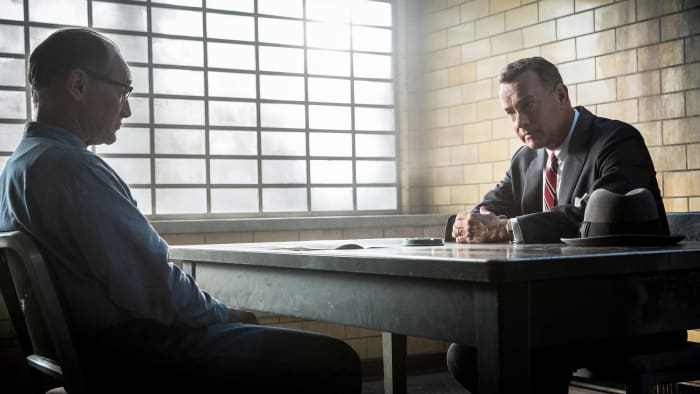
“You don’t seem alarmed.” “Would it help?” The stoicism of Mark Rylance’s Russian spy gives Steven Spielberg’s Cold War drama a perverse sense of calm in the face of potential annihilation. Three years ago, “Bridge of Spies” was a potent reminder of how close we came to nuclear war and how patriotic public servants kept us from tumbling over the brink by upholding America’s values even when it was inconvenient. This is a movie that celebrates diplomacy, humanity and intellect. Today, it plays as one of the decade’s most essential films.
"Winter’s Bone"
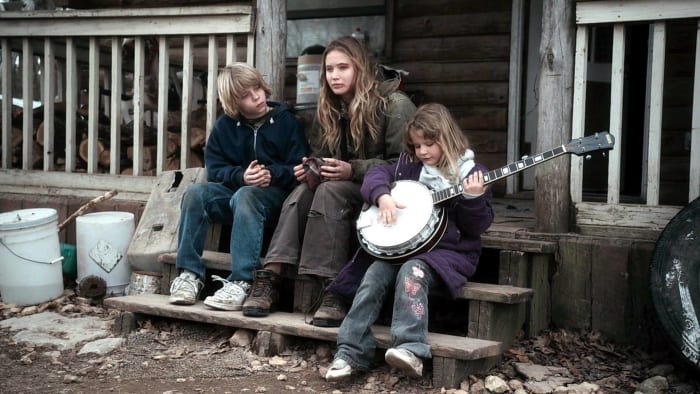
Debra Granik’s Ozark noir launched Jennifer Lawrence’s career, and, if there was a damn bit of justice in the world, it would’ve won John Hawkes a Best Supporting Actor Oscar. There’s a conventional mystery narrative to be carved out of Daniel Woodrell’s novel, but Granik is far more interested in how these poverty-stricken people live. She burrows deep into the meth-y milieu and gives us a strong sense of what her protagonist is up against.
"Scott Pilgrim vs. the World"

A box-office flop upon its initial release, Edgar Wright’s adaptation of Bryan Lee O’Malley’s graphic novel might be the most visually influential film — on commercials and music videos alone — since “The Matrix." It’s a playful, perpetually inventive movie that treats 20-something romance and heartbreak with the proper levity. Scott’s outsized, superheroic vision of dating is endearingly pathetic; it’s how guys of a certain age and pop cultural upbringing view the world before the world starts hitting back. And while Wright is a Gen X-er, this feels like the first true millennial movie.
"Interstellar"

Another film that probably came out a few years too early, Christopher Nolan’s “Interstellar” has acquired a sad urgency in light of the looming climate crisis bearing down on the planet. Matthew McConaughey is superb as a former NASA pilot who’s recruited by what’s left of the space program to travel through a wormhole in search of a habitable planet. Based on the brilliant work of Cal Tech physicist Kip Thorne, there’s a patina of hope at the end of the journey, but it comes at an emotionally devastating price.
"Lady Bird"

Greta Gerwig’s coming-of-age dramedy is an anti-Hughesian depiction of what it’s like to grow up on the literal wrong side of the tracks. In Sacramento. Gerwig insists this isn’t an autobiographical film, but the lower-middle-class travails of Christine “Lady Bird” McPherson (Saoirse Ronan) ring with an uncommon authenticity. All of the teen movie conventions are upended: Lady Bird thinks she’s got the guy, but he’s gay; Lady Bird thinks she’s got the guy again, but he’s a conceited jerk; Lady Bird attains her dream of attending NYU, but instead of a triumphant fade-to-black, we watch her get alcohol poisoning on her first night at school. To a degree we’d probably not like to admit, we’ve all been there.
"Manchester by the Sea"
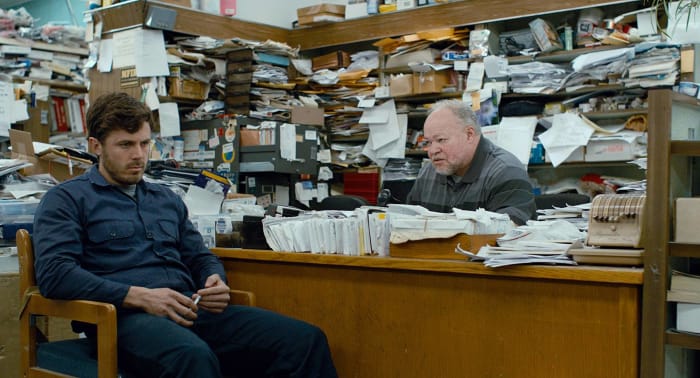
“I can’t beat it.” Kenneth Lonergan writes some of the most off-handedly funny dialogue you’ll ever hear, but, thematically, he is drawn to tragedy. After the ordeal of “Margaret," he scaled back and zeroed in on this meticulously constructed character study of a destroyed man (Casey Affleck) who’s asked to care for his deceased brother’s teenage son. To do so, he must go back to the site of his devastation. Unlike “Margaret”,\ there’s no catharsis to be found here. There is, however, a sense of rebuilding. You’ll never be whole, but you will live, and you can live with purpose.
"House of Tolerance"

Bertrand Bonello is the most underrated filmmaker on the planet, and if you’re a fan that’s precisely where you want him to be. Keep him away from American film and television. Let him make his non-commercial, druggy movies about Parisian brothels set at the turn of the 20th century and whatnot. Bonello’s film is hardly nostalgic; he presents the house as a languid prison from which there is no escape because, well, there’s no opportunity. Some of the clients are friendly; others are vicious. There is some security in living together, but there is no future in living like this. If you interpret the final scene as anti-sex worker, you have not been paying attention.
"Nocturama"

Timing is everything. And distribution. That helps. Nocturama was released theatrically in August of 2016 and barely saw the light of a projector in the United States. It’s now available on Blu-ray and Netflix, but sans any significant promotion, this film about an ethnically diverse group of terrorists who wreak havoc on Paris and then hole up in department store where they’re eventually executed by the authorities has yet to find its audience. Bonello’s obviously not on the terrorists’ side, but he is sympathetic to their youthful fury. It’s a masterful piece of provocation that sees violence without purpose as a dead end.
"Under the Silver Lake"

A spellbinding, wholly inscrutable mystery that gleefully cribs from Raymond Chandler, Robert Altman and Jacques Demy, David Robert Mitchell’s third film got dumped by Fox Searchlight after mixed reviews at Cannes but has quickly found a devoted cult following. Andrew Garfield plays an aimless peeping tom who falls hard for his gorgeous new neighbor (Riley Keough). When she disappears overnight, he searches every hip spot in Los Angeles trying to ascertain her whereabouts. This is a film that demands multiple viewings, even though it’s a rabbit hole to which there is no end.
"Snowpiercer"
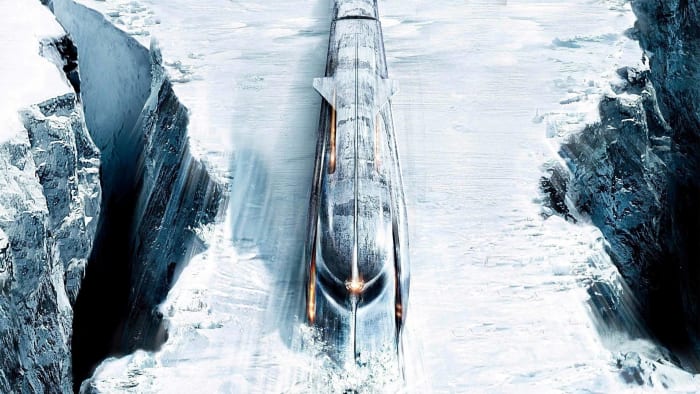
Bong Joon-ho loves his metaphors, and he devised a great big one with this film about a passenger train carrying multiple classes — poor to wealthy — of post-apocalypse survivors. Bong delights in thrusting viewers through the interconnected cars; sometimes they’re oblivious; other times you encounter a submachine-gun-packing Alison Pill. The action is beautifully orchestrated, and the finale is a brilliant kick in the gut. This is where we’re headed.
"The Cabin in the Woods"

Drew Goddard and Joss Whedon are two of the most pop culturally savvy filmmakers working today, so it’s bizarre that in this hyper-aware era, their joyous genre mash-up didn’t connect with a generation raised on dead-end slasher flicks. Perhaps the film should’ve delayed its meta reveal; start conventionally and then blow the audience’s mind. But then you’d have nothing to sell. Foregrounding the behind-the-scenes insanity was a masterstroke as is the film’s ultimate adherence to the dead-end finale this genre demands.
"Holy Motors"

Once the enfant terrible of French cinema, Leos Carax played the role of the comeback kid in 2012 with this inexplicable mélange of…happy. How else to describe this go-for-broke, sucker punch of a movie? You could call it undisciplined, but that would be ignoring Carax’s record of joyous, unprovoked spontaneity in films like “Boy Meets Girl” and “The Lovers on the Bridge." This is his finest feat of controlled chaos. Where’s a drum corps when you need one?
"Moonrise Kingdom"
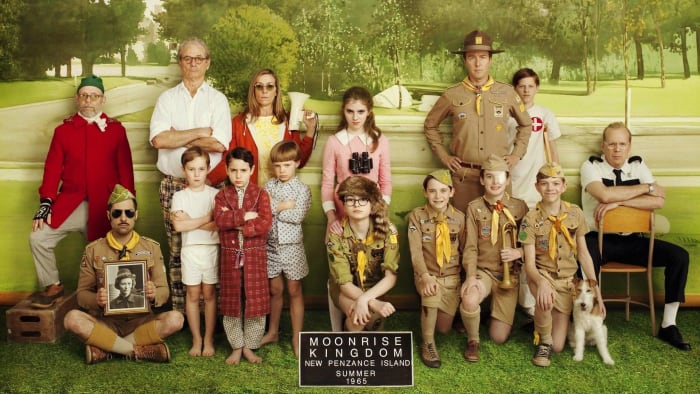
YA literature nowdays is generally trash, but Wes Anderson’s film about two rebellious kids, Suzy (Kara Hayward) and Sam (Jared Gilman), deeply captures a prepubescent innocence that’s hard to get across without seeming benign or icky. What makes “Moonrise Kingdom” stick is the realization that these two runaways will, most likely, wind up as unhappy and unfulfilled as their parents. The final scene, in which Sam slips out Suzy’s window to return home with Captain Sharp (Bruce Willis), is devastating. May they not grow up to be assholes.
"Drug War"

Johnnie To knows crime films front to back to front again and every twist in between. Many of the old Hong Kong masters have found it difficult to work within the Chinese governments strictures, but To cleverly gets around the censors by making a film about a bunch of Joe Fridays trying to take down a syndicate. They won’t cross the lines a Popeye Doyle or a Harry Callahan might, which allows the bad guys, particularly a pair of deaf-mute brothers, to steal the show. Genre subversion aside, this is just a massively satisfying action film. Johnnie To belongs in the pantheon with John Woo, Tsui Hark and the late, great Ringo Lam.
"Under the Skin"

Jonathan Glazer is a choosy fella. Nine years after confounding audiences with “Birth," he returned with this kinky-crazy sci-fi flick about a predatory extraterrestrial (Scarlett Johansson) who lures men to their death in a toxic fluid. Glazer doesn’t offer any concrete explanations as to the alien’s mission, but we nevertheless sink into the mood of the piece — particularly because Johansson’s interactions with passerby are unplanned. It’s an ambitious, inscrutable piece of science fiction.
"The Counselor"

If you haven’t seen this Ridley Scott-Cormac McCarthy combo, you need to get yourself fitted for a bolito. Michael Fassbender stars as a mob lawyer who crosses the line and gets involved with his client’s business. This could be a boilerplate rise-and-fall story, but McCarthy writes it as a descent into hell; the counselor thinks he’s keeping his hands clean, but when the deal goes south, he has the most to lose. Skip the theatrical cut, and watch the extended version which features the best acting of Rubén Blades’ career.
"Parasite"

Yes, the title of Bong Joon-ho’s dark comedy explicitly refers to the film’s central metaphor. So did Clint Eastwood’s “Unforgiven," and that’s justifiably one of the most celebrated Westerns ever made. Bong’s film centers on a poor family that attaches itself to a wealthy clan to get out of the pizza box folding business. Once they’ve moved in, they discover that they’re not the first to hatch this plan. The ensemble work, particularly in the living room scene, is sensational.
"Dunkirk"

Christopher Nolan’s airtight, multi-perspective depiction of the Dunkirk evacuation is his finest work since “Memento" and a wonderfully British film about duty, survival and sacrifice in the face of impossible odds. Nolan’s expert temporal sense is deftly employed here; rather than let the events play out conventionally, he uses time as a constricting, mortal threat. There’s not a wasted shot in the entire movie.
"The Wolf of Wall Street"

“I don’t have a pen.” Martin Scorsese is at his best when he’s documenting the lower depths of humanity, and he touched the bottom of the swamp with this Terence Winter-scripted adaption of penny-stock-scam-artist Jordan Belfort’s memoir. Leonardo DiCaprio nails the lead role, but Scorsese gooses the proceedings with an intoxicating energy that makes you understand the allure without wanting to succumb to it.
"Pass Over"

Antoinette Nwandu’s Chicago-set riff on “Waiting for Godot” is perfect material for Spike Lee, who took his cameras to the Steppenwolf Theater to document Danya Taymor’s critically acclaimed production. The result is a uniquely intimate drama that repeatedly acknowledges the presence of the mostly African-American audience. They’re responding to a reality with which they’re all too familiar, and, like the indefatigable dreamers played by Jon Michael Hill and Julian Parker, they’re desperate to find their Promised Land. But it’s hard. Every time these two young men so much as think about a life outside of their neighborhood, society pushes back.
"Sorry to Bother You"
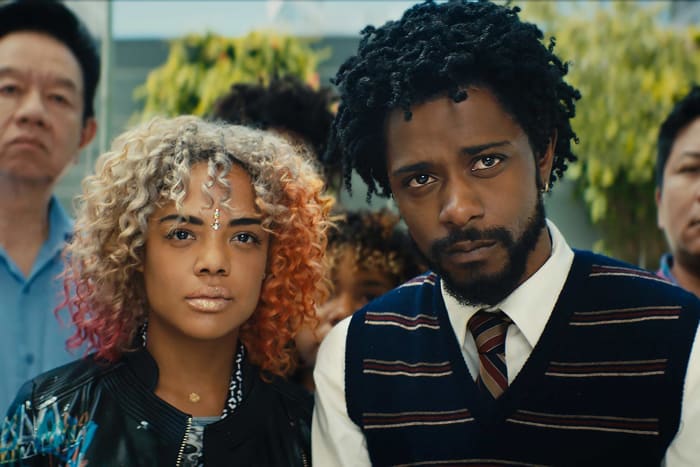
Boots Riley exploded onto the scene with this raucous satire of Bay Area tech bros, the gig culture and just about every other issue that's got us fouled up at the end of the decade. Lakeith Stanfield is amazing as an ambitious young black man who rockets to success when he discovers his white voice. It's only his first movie, but Riley's visual sensibility is fully formed. He's going to be one of our most essential filmmakers for many years to come.
"Her"

We’re all in love with our phones. But what if our phone understood us and guided us and became our lover? Spike Jonze’s film takes this concept all the way, but in a very sweet and ultimately bittersweet direction. We’re lonely people looking for a connection. We wouldn’t have our heads down in our phones if this wasn’t the case.
"The Grand Budapest Hotel"
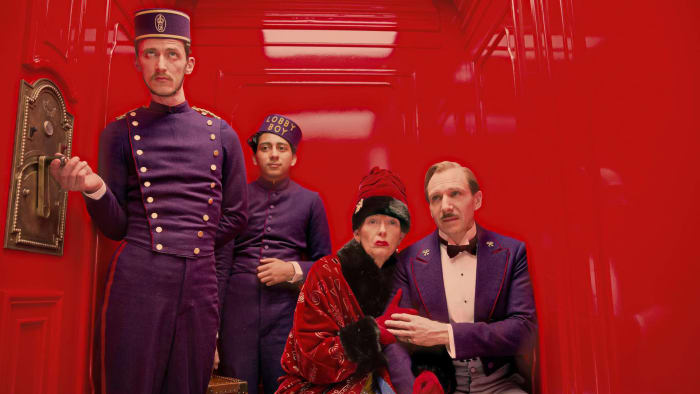
On one hand, Wes Anderson is paying tribute to himself as the author of this story set in a fictional kingdom undone by a fictional war. We know what he’s getting at, but this is a film about the importance of creation. Anderson has never wanted to deal with real-world consequences, but he gets very close here. It’s a funny and clever film, but it closes like a coffin.
"Once Upon a Time in Anatolia"

Whenever you throw the “Once Upon a Time…” moniker onto your movie, you’ve essentially announced the presence of an epic. Nuri Bilge Ceylan brings the length, but he fills the space with a rambling murder investigation that’s reminiscent of Bong Joon-ho’s “Memoirs of Murder." But Ceylan seems to have little interest in resolving the narrative. Eventually, he does, but the only people left watching are those who’ve little interest in the whodunit rigmarole of it all.
"Mad Max: Fury Road"

Per Steven Soderbergh: “I don’t understand two things: I don’t understand how they’re not still shooting that film, and I don’t understand how hundreds of people aren’t dead.” George Miller made Hal Needham look like George Cukor with the motorized madness of “Mad Max: Fury Road," but it was a deliberate trick of stuntwork and visual f/x that made us believe we were watching a deluxe replay of “The Road Warrrior." Miller has expressed an interest in returning to this universe, but why bother? He’s the only director alive who can top this, and he has nothing left to prove.
"Blue Ruin"

It's the best low-budget crime flick debut since “Blood Simple." Jeremy Saulnier is a born storyteller. Every single twist in this film is the answer to “what shouldn’t the hero do,” and yet you stick with it because you don’t have a better answer.
"Toni Erdmann"

This was nearly remade with Jack Nicholson and Kristen Wiig, but you can’t top perfection. It’s infuriating that Maren Ade, the writer-director of the sensational “Everyone Else," had to seek Hollywood approval for a redo of this ludicrously commercial story about a father trying to reconnect with his daughter. It darts in odd directions, but that’s why we love it.
"mother!"

Darren Aronofsky tore down his creative process and turned it into an art-house riot that drew the approval of Martin Scorsese. Very few filmmakers get this kind of latitude, but Aronofsky marshaled the support of Jennifer Lawrence, Javier Bardem and Paramount Pictures to get this film about making a film past the finish line.
"Phantom Thread"
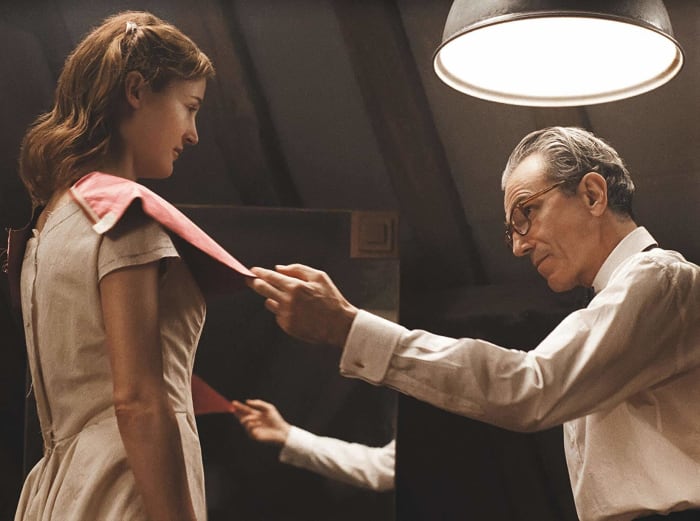
Paul Thomas Anderson has been building to a “Godfather”-level masterpiece for most of his career, and if this is it, do us a favor and retire and spare us your “Jack." All joking aside, this is the kind of film where you freak out over camera placement (e.g. the seamstresses ascending the staircase) and wonder if people are paying attention to the masterpiece unfolding before you.
"Star Wars: Episode VIII – The Last Jedi"

What do you want out of a Star Wars movie? Do you want Luke Skywalker back-flipping over stormtroopers and Chewbacca taking a dump in the hyperdrive, or do you want the characters you care about meeting meaningful ends because, you know, no one lives forever (save for R2-D2)? J.J. Abrams screwed this up with “The Force Awakens," but Rian Johnson gave Luke Skywalker a hero’s sendoff. Better than that, he democratized the force. A slave kid on a planet far, far away might have the gift. That’s hope, and that’s a rare commodity nowadays.
"Burning"

Lee Chang-dong’s artful expansion of Haruki Murakami’s short story is a masterfully staged love triangle that slowly builds into a mesmerizing thriller. It’s beautifully played by Yoo Ah-in, Steven Yeun and newcomer Jeon Jong-seo and requires that the viewer pay close attention to every word (which is a depressingly big ask nowadays), but its rewards are plentiful. Go in knowing as little as possible, and you’ll be absolutely knocked out by the finale.
"Leave No Trace"

Eight years after the triumph of “Winter’s Bone," Debra Granik returned with this deep-tissue character study of a PTSD-suffering ex-soldier (Ben Foster) who can’t abide society or stability. This is rough going for his teenage daughter (Thomasin McKenzie), who adores her father and follows him without question even though she’d prefer to make a go of it in the civilized world. Whereas “Winter’s Bone” had a semi-conventional noir spine, “Leave No Trace” is simply, quietly about two misfits trying to live on their own terms.
"BlacKkKlansman"

This fact-based drama about an African-American police officer (John David Washington) who infiltrated the Colorado Springs branch of the Ku Klux Klan with the help of his Jewish partner (Adam Driver) is, in the hands of Spike Lee, a hilarious and infuriating indictment of America’s inability to move beyond its white supremacist past. Lee hammers home the connections between the past and the present, challenging us to own our role in allowing bigotry to flourish all the way to the White House.
"Moonlight"

Barry Jenkins’ Oscar-winning drama is an unshakable tale of a young man’s brutal coming-of-age in a world that isn’t fully accepting of his color or sexual identity. Based on Tarell Alvin McCraney’s play, “In Moonlight Black Boys Look Blue," Jenskins’ film bores deep into its characters’ lives, giving the viewer a riveting, yet uncomfortable front-row seat to an experience that is quite unlike our own.
"Once Upon a Time…in Hollywood"

Quentin Tarantino’s love letter to the city he calls home is a shamelessly nostalgic wish for a reality that never was. Leonardo DiCaprio and Brad Pitt share one of the big screen’s great bromances as a fading movie star and his loyal stuntman with a dark past. Margot Robbie is absolutely heartbreaking as the doomed starlet, Sharon Tate, who in this iteration of history gets to survive her senseless slaughter.
"Get Out"

Jordan Peele’s debut feature established him as the modern-day answer to Rod Serling and George A. Romero: a horror maestro who knows how to use the genre to comment on the day’s myriad social ills. It’s amazing how quickly the “sunken place” became shorthand for people who’ve lost their integrity. Daniel Kaluuya gives a sensational performance as a young black man who realizes his girlfriend’s parents are a little too woke for comfort.
"Inherent Vice"

Paul Thomas Anderson risked absolute failure in this adaptation of Thomas Pynchon’s neo-noir novel and came away with a shaggy-dog mystery that compares favorably to Robert Altman’s stoner detective classic, “The Long Goodbye." Joaquin Phoenix is tremendous as the mumbling, zonked-out P.I. who’s trying to crack a case that confusingly involves his ex-girlfriend (Katherine Waterston). Nothing entirely adds up until, voila, it totally does. It’s an oddly touching tale of a broken mind trying to put the pieces together before he completely loses his senses.
Jeremy Smith is a freelance entertainment writer and the author of "George Clooney: Anatomy of an Actor". His second book, "When It Was Cool", is due out in 2021.
More must-reads:
Trending in Entertainment
Customize Your Newsletter
 +
+
Get the latest news and rumors, customized to your favorite sports and teams. Emailed daily. Always free!
Use of this website (including any and all parts and
components) constitutes your acceptance of these
Terms of Service and Privacy Policy.

